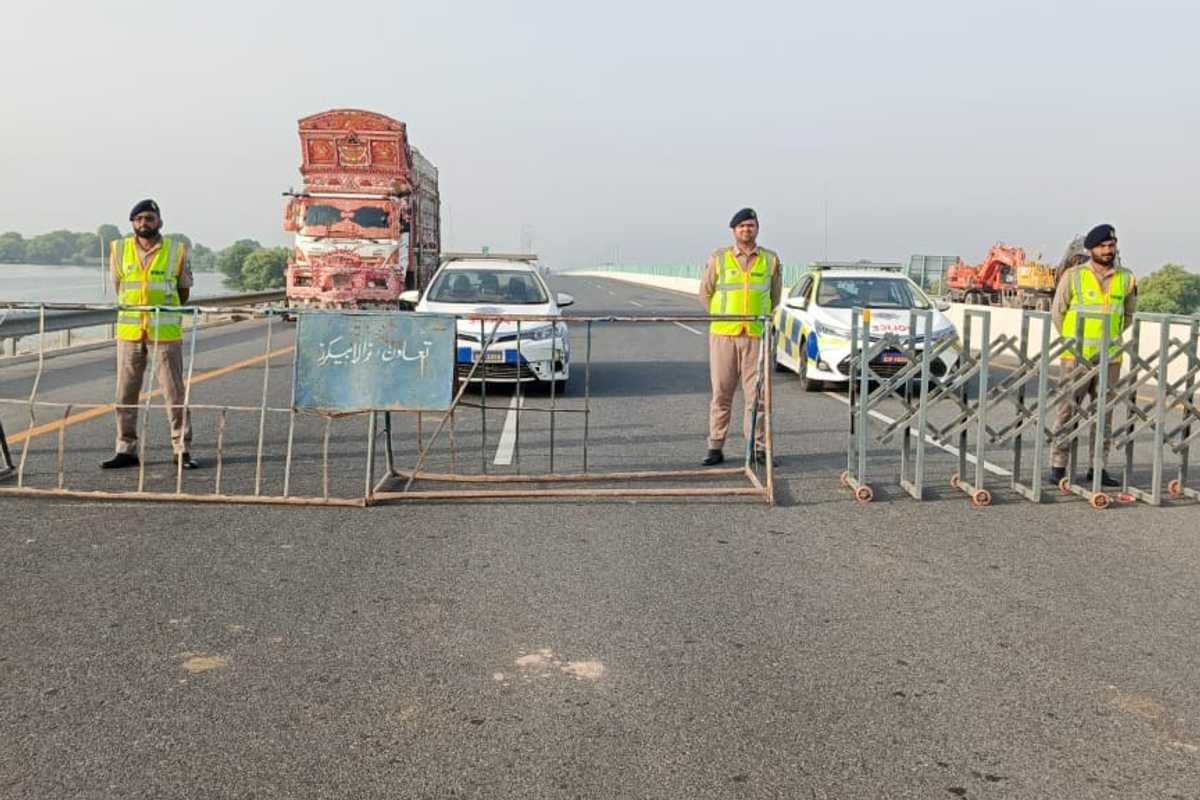Why the closure of Pakistan’s M5 motorway matters
The motorway connects Punjab’s agricultural belt to Sindh’s markets, making its closure a significant blow
News Desk
The News Desk provides timely and factual coverage of national and international events, with an emphasis on accuracy and clarity.

The shutdown of M5 Motorway has caused major logistical headaches for authorities in Pakistani province of Punjab.
Motorway Police
One of Pakistan’s most important highways, the Multan–Sukkur Motorway (M5), has been shut for nine consecutive days after floods damaged it at multiple points, disrupting a critical link between the country’s heartland and its southern trade hubs.
The closure has highlighted how climate-driven disasters are straining Pakistan’s infrastructure and economy, with ripple effects for agriculture, industry, and relief operations.
A key artery under CPEC
Known as the M5, the 392-kilometer motorway is part of the China-Pakistan Economic Corridor (CPEC), a multibillion-dollar project central to Beijing’s Belt and Road Initiative. Completed in 2019, the six-lane highway connects Multan in central Punjab to Sukkur in northern Sindh.
The road is a backbone for passenger and freight traffic. It shortens travel time between Multan and Sukkur from 11 hours on the older National Highway to just 4 hours, linking Punjab’s agricultural belt with Sindh’s industrial hubs and Karachi, Pakistan’s largest port city.
Floodwaters force shutdown
Flooding on the Sutlej River, which cuts through Punjab, breached embankments near Bahawalpur and Jalalpur Pirwala, damaging the motorway at six locations. Authorities say four of its six lanes were left unsafe at some points, while several interchanges remain underwater.
Traffic has been diverted to older, slower routes. Vehicles from Multan to Sukkur are rerouted to the G.T. Road at Shah Shams Interchange and allowed back onto the motorway at Uch Sharif. Southbound traffic is diverted at Uch Sharif and re-enters at Sher Shah Interchange near Multan.
Officials said heavy machinery is being used to stabilize damaged sections, but repairs cannot be completed until floodwaters recede.
Disruptions ripple across economy
The shutdown has caused major logistical headaches. Freight trucks carrying crops, goods and raw materials between Punjab and Sindh now face hours-long detours, raising fuel and transport costs.
Passenger buses and private vehicles are also delayed, with diversions adding to congestion on older roads. Relief efforts in flood-hit districts, including Multan, Lodhran and Bahawalpur have slowed as emergency supplies face longer journeys.
Floodwaters also disrupted repairs on a gas pipeline and delayed restoration of local roads and power in parts of southern Punjab.
Wider stakes
The M5 is not just a domestic highway but a strategic link in CPEC, which aims to connect western China with Pakistan’s Arabian Sea ports. Its closure underscores the vulnerability of trade and transit routes that underpin Pakistan’s economy.
A prolonged disruption could hurt supply chains. Farmers in Punjab, one of the world’s largest producers of cotton and wheat, may struggle to move crops to markets. Industries in Sindh, including Karachi’s textile and export sectors, face delays in receiving raw materials.
The closure also raises questions about Pakistan’s ability to safeguard key infrastructure from increasingly severe floods, which scientists link to climate change.
Emergency response
Provincial officials said breaches in embankments are being repaired to prevent further ponding along the motorway. Relief camps have been set up in flood-affected areas, while veterinary teams are working to protect livestock.
Since late June, Pakistan’s National Disaster Management Authority says more than three million people have been rescued from flood-hit regions. The country has reported more than 1,000 flood-related deaths and damage to over 12,000 homes, 239 bridges and nearly 2,000 kilometers of roads.
Punjab has suffered the heaviest toll, with more than 2.8 million people evacuated.







Comments
See what people are discussing